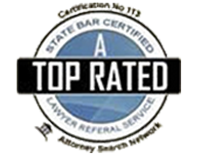introduction to juvenile dependency law
Juvenile dependency is an area of law that is intended to protect children who may have been abused or neglected by their parents or guardians. The investigative process is triggered after a referral is made to Child Protective Services (DCFS, CPS, HSA, CFS) stating that a child has been abused or neglected. The referral may come from an ex-spouse, neighbor, physician, therapist, teacher or from law enforcement. Upon receipt of this referral, CPS will initiate a child abuse investigation and attempt to ascertain if that child is being mistreated or abused. Parents are entitled to legal representation at the onset of the investigation and should retain the services of a Juvenile Dependency Lawyer who is familiar with a parent’s rights during a CPS investigation. If CPS finds that child abuse has occurred and there is no way to protect the children other than for Superior Court to oversee the matter, the family will need a Dependency Attorney to represent them in court. The Superior Court requires that the Dependency Attorney have specific training and experience handling these types of cases. If a parent counsel does not have the requisite experience as a Juvenile Dependency Attorney, the court will request a waiver from the parents that they are waiving their right to be represented by an experienced Dependency Attorney or grant the parent a brief continuance to hire a Juvenile Dependency Lawyer.
LEGAL SERVICES PROVIDED
SOCIAL WORKER INVESTIGATIONS
INFORMAL SUPERVISION AGREEMENTS (“301” CONTRACTS)
CHILDREN’S COURT REPRESENTATION
RELATIVE PLACEMENT
FOSTER PARENT/CARETAKER RIGHTS
DE FACTO PARENT APPLICATIONS
ADOPTION HOME STUDY APPEAL
JUVENILE DEPENDENCY ATTORNEYS:
Juvenile Dependency Law is an extremely specialized area of law. The California Rules of Court require attorneys who practice in this field to have an expertise in Juvenile Dependency Law and familiarity with all state and local rules for Children’s Court. During the attorneys' initial appearance, they are required to submit a Declaration of Competence under oath attesting to their expertise in Juvenile Dependency Law.
INITIAL COURT HEARING:
The first court proceeding is referred to as the Detention Hearing and the following issues are addressed: 1) The parent's arraignment; 2) Placement and Visitation Orders; 3) Selection of future court dates including a trial schedule in the event the matter can not be resolved through attorney negotiations.
TRIAL:
If a parent disputes the charges in the Child Abuse Petition they have the right to have a Court Trial. If their child is detained from their custody, the trial must take place within 15 court days of the detention hearing and 30 days if the child was not removed from their custody or was released back to the parent at the Detention Hearing. Parents are afforded all of the same due process rights they are entitled to in any other Superior Court proceeding. The parent’s attorney can subpoena relevant witnesses and examine them on the stand under oath. During the trial, with a few exceptions, CPS has the burden to present evidence to the court that the alleged abuse in the petition occurred. The child has a court-appointed attorney in every case who advocates for whatever position they feel is in the child’s best interests. Oftentimes this recommendation is contrary to the parent’s wishes and requests.







